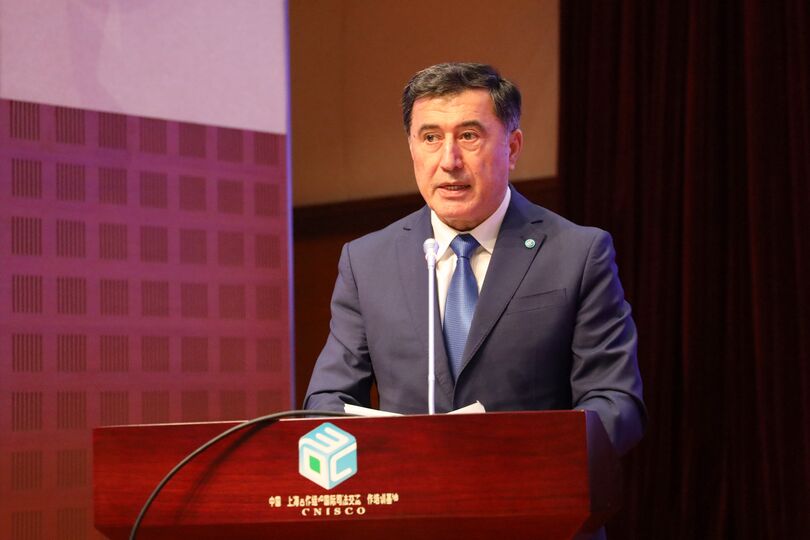At the invitation of the Chinese Research Centre at the China Institute of International Studies and the Shanghai University of Political Science and Law, the delegation of the SCO Secretariat led by Secretary-General Vladimir Norov took part in the forum, Opportunities and Challenges for the SCO amid the COVID-19 Pandemic, which took place on 2-3 December 2020 in Shanghai.
The event was attended by representatives of the Foreign Ministry, Chinese Ministry of Commerce, as well as leaders and experts of Chinese research and analysis institutes that study SCO issues. Among distinguished guests were Li Hui, Special Representative of the Chinese Government for Eurasian Affairs, Rector of the Shanghai University of Political Science and Law Liu Xiaohung, President of the China Institute of International Studies Xu Bu, deputy chair of the Shanghai Municipal Committee of the Chinese People's Political Consultative Conference Zhou Hanming, and others.
Speaking at the opening of the forum, Vladimir Norov shared his vision of the SCO's development and the interaction of its member states during the post-COVID period. He outlined the main areas of cooperation within the SCO that require a scientific approach for their development.
The Secretary-General emphasised that given the ongoing deep transformation of international relations, the SCO continues to assert itself as one of the important pillars of the international order, and its role as a mechanism of multilateral cooperation is increasing, as it contributes to peace and stability and the development of its member states.
Vladimir Norov also outlined the prospects for interaction within the SCO in digital economy, the development of industrial clusters, financial support of projects, utilising the region's transit potential, strengthening interaction in healthcare and promoting youth businesses.
Speaking about the international position of the SCO, the Secretary-General emphasised that the SCO, as an institute of regional security and cooperation, should not be considered an instrument of confrontation between the East and the West. "Our organisation is developing amid a difficult global and regional satiation, and therefore the practical activity of the SCO needs an objective research and analytical assistance even more," he said, adding that the SCO's future objective could be a system-wide integration of the efforts of numerous players on the Eurasian arena.
Vladimir Norov also briefed the participants on the results of the meetings of the Council of Heads of State and the Council of Heads of Government that took place last November, and the proposals and initiatives voiced there aimed at overcoming the negative social and economic impacts of the coronavirus pandemic in the SCO space.
The forum had three sessions, devoted to the new changes and trends in the Eurasian regions; new challenges and opportunities for SCO cooperation; and new demands and objectives of the SCO development.
During the discussions, representatives of Chinese academic community shared their views on the prospects of interaction among the SCO member states during the pandemic. They presented proposals related to overcoming the corona-crisis with minimal losses and the views on the current issues of regional policy in the SCO space.
Participants in the forum also delivered reports on the activity of the China-SCO demonstration zone in Qingdao and the SCO demonstration base on exchanging agricultural technologies and training in Yangling.
